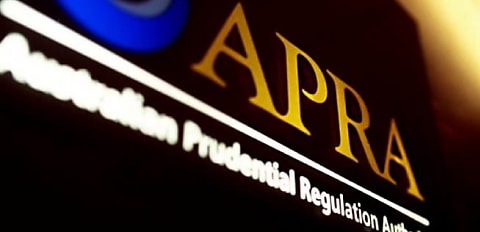The Australian Prudential Regulation Authority (APRA) has released its monthly authorised deposit-taking institution (ADI) statistics for February 2023 revealing that the total mortgage portfolio of the banks reached $2.074 trillion, up from $2.068 trillion the month before.
Owner-occupied lending increased around $4.3 billion to $1.395 trillion, up from $1.391 trillion the month prior.
While owner-occupied lending has slowed slightly from last year (for example, October 2022 saw loans rise by more than $7 billion), all four majors reported home loan growth for February 2023, according to APRA results.
The Commonwealth Bank of Australia’s (CBA) total mortgage portfolio reached $537.5 billion, reporting an almost $1.8 billion increase to its owner-occupied mortgages to $360.5 billion.
CBA’s investor loan book lifted marginally to $176.9 billion.
National Australia Bank (NAB) reported that owner-occupied housing loans for February reached $198.1 billion, up from the $197.9 billion reported the month prior.
The bank’s investor portfolio also increased to $107.9 billion.
Westpac Banking Corporation (Westpac) saw its owner-occupied home loan book grow to $287.9 billion, up from $287.2 billion, while investor loans reached $154.9 billion.
Australia and New Zealand Banking Group Limited (ANZ) also reported a marginal lift to both its owner-occupied home loans and investor loan book, to $181.2 billion and $91.7 billion.
Macquarie Bank — which has been rapidly growing its mortgage book since the COVID-19 pandemic first hit — reported its owner-occupied mortgage book reached $59.5 billion, up from $58.8 billion, and investment lending lifted slightly to $44.3 billion.
The lift in home lending in February followed nine consecutive cash rate hikes by the Reserve Bank of Australia (RBA), taking the cash rate to 3.35 per cent.
Australian banks ‘well positioned’: RBA
Given the rapid increase in the cash rate and the full effect of those increases ‘yet to be felt’, the RBA paused a further rate hike in April, following March’s 25-bp increase, keeping the cash rate at 3.6 per cent.
During an address at the National Press Club on Wednesday (5 April), RBA governor Philip Lowe said this “does not imply that interest rate increases are over”.
“The board expects that some further tightening of monetary policy may well be needed to return inflation to target within a reasonable time frame,” he said.
“With monetary policy now in restrictive territory, it was time to hold interest rates steady and accumulate more information.”
Mr Lowe observed Australia’s banks remained “well positioned to provide the credit and other financial services that the economy needs”.
“Our banks have an unquestionably strong capital position and liquidity reserves that are well above prudential requirements,” Mr Lowe said.
“They also have diversified deposit bases and carry very limited interest rate risk, with APRA requiring the largest banks to hold capital against this risk as part of their core requirements — something that regulators elsewhere in the world have not done.”
[Related: Banks report growth in mortgage book amid slowing demand]

